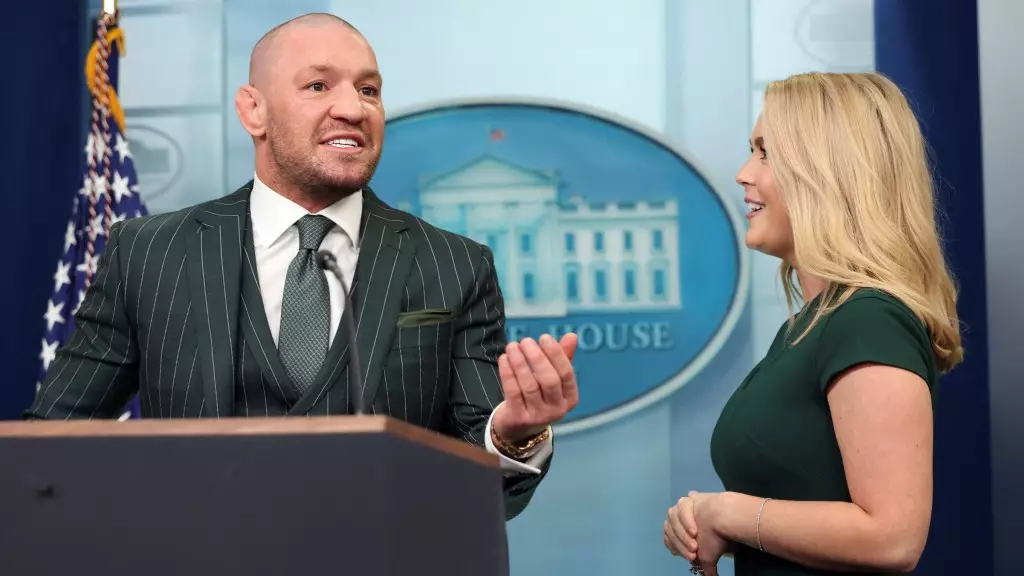Conor McGregor’s transition from the UFC’s Octagon to the political arena is puzzling, leaving fans and analysts alike questioning the rationale behind such a drastic career pivot. The former UFC champion recently expressed his intention to enter the race for the Irish presidency, a move seemingly at odds with his lengthy hiatus from competitive fighting. Since his TKO loss to Dustin Poirier and subsequent injury in 2021, McGregor’s career has been marred by setbacks, leading to speculation about whether his political aspirations are a clever strategy or a desperate search for relevance.
Greatness Delayed: What Does It Mean for His Legacy?
Daniel Cormier’s remarks on McGregor’s mindset shed light on the potential implications of this shift. Cormier suggests that by claiming “greatness does not rush,” McGregor signals a departure from the relentless drive that once characterized his fighting style. This assertion raises critical questions: Are McGregor’s ambitions in politics merely a distraction from his fading athletic career? Or perhaps a recognition of the changing landscape of his legacy? Cormier’s perspective emphasizes that the hunger and urgency that once propelled McGregor to the pinnacle of MMA may have been replaced by a lack of focus—a worrying sign for anyone hoping to see him fight again.
Public Sentiment: A Love-Hate Relationship
Adding another layer of complexity to this issue is Cormier’s pointed remark about McGregor’s unpopularity in Ireland. The former champion’s assertion that many in his home country “can’t stand” McGregor raises eyebrows and questions the viability of his political aspirations. How can someone seek a political position with potential backing from an electorate that largely seems indifferent, if not openly hostile? One has to wonder if McGregor is operating under an illusion of support or, alternatively, simply underestimating the level of public scrutiny he would face as a politician.
The Quest for Relevance: Adrenaline or Desperation?
Chael Sonnen’s comment about McGregor’s need for attention being akin to a drug is particularly striking. This notion underscores a significant concern: Is McGregor motivated by a genuine desire to contribute to politics, or is this simply another ploy to maintain his celebrity status in an environment where he has become increasingly irrelevant in the sports world? Sonnen’s point about the “ridiculousness” of McGregor’s political ambition resonates with those who see the endeavor as a farce—an eye-catching publicity stunt designed to keep him in the public consciousness as he grapples with the reality of his fighting career diminishing.
The Broader Implications of McGregor’s Political Aspirations
Finally, one must consider the broader implications of a figure like Conor McGregor entering the political landscape. If someone with a polarizing persona like his were to attain a political office, what does that mean for the democratic process? Would his approach bring much-needed excitement, or merely exacerbate the gridlock that typifies contemporary politics? The dichotomy of McGregor’s past success as an athlete and the unpredictable nature of his political ambition raises profound questions about authenticity, credibility, and leadership in today’s society. Ultimately, the intersection of sports and politics has never been straightforward, and McGregor’s foray into this realm could set a precedent that challenges traditional norms in both fields.

